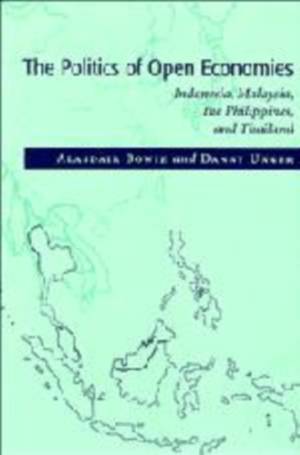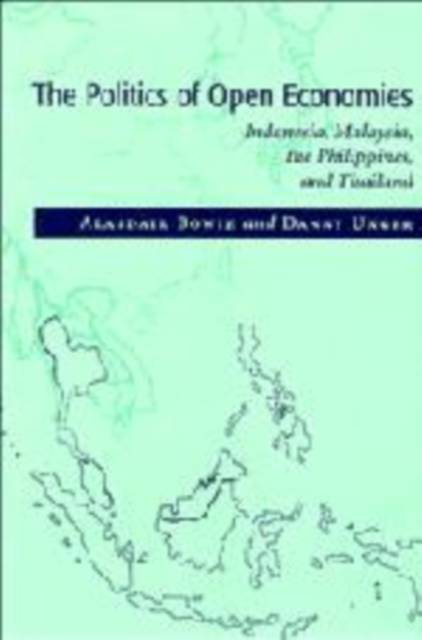
Je cadeautjes zeker op tijd in huis hebben voor de feestdagen? Kom langs in onze winkels en vind het perfecte geschenk!
- Afhalen na 1 uur in een winkel met voorraad
- Gratis thuislevering in België vanaf € 30
- Ruim aanbod met 7 miljoen producten
Je cadeautjes zeker op tijd in huis hebben voor de feestdagen? Kom langs in onze winkels en vind het perfecte geschenk!
- Afhalen na 1 uur in een winkel met voorraad
- Gratis thuislevering in België vanaf € 30
- Ruim aanbod met 7 miljoen producten
Zoeken
The Politics of Open Economies
Indonesia, Malaysia, the Philippines, and Thailand
Alasdair Bowie, Daniel Unger, Bowie Alasdair
€ 262,45
+ 524 punten
Uitvoering
Omschrijving
This book asks why some countries have responded to the external constraints and opportunities posed by their global and regional economic context by opening up their economies. In particular, the authors examine the role domestic political and economic factors play in shaping the decision to become more open, or more inward-looking. The countries of Southeast Asia have generally enjoyed economic success in the postwar period. The authors argue that one of the explanations for this success has been their integration into the global division of labor, and analyze decisionmaker's reasons for following this course. They place particular emphasis on external events, notably the two oil shocks of the 1970s, and the more recent outflow of investment capital and manufacturing capacity from Japan and East Asia.
Specificaties
Betrokkenen
- Auteur(s):
- Uitgeverij:
Inhoud
- Aantal bladzijden:
- 260
- Taal:
- Engels
- Reeks:
Eigenschappen
- Productcode (EAN):
- 9780521583435
- Verschijningsdatum:
- 30/10/1997
- Uitvoering:
- Hardcover
- Formaat:
- Genaaid
- Afmetingen:
- 152 mm x 229 mm
- Gewicht:
- 553 g

Alleen bij Standaard Boekhandel
+ 524 punten op je klantenkaart van Standaard Boekhandel
Beoordelingen
We publiceren alleen reviews die voldoen aan de voorwaarden voor reviews. Bekijk onze voorwaarden voor reviews.









